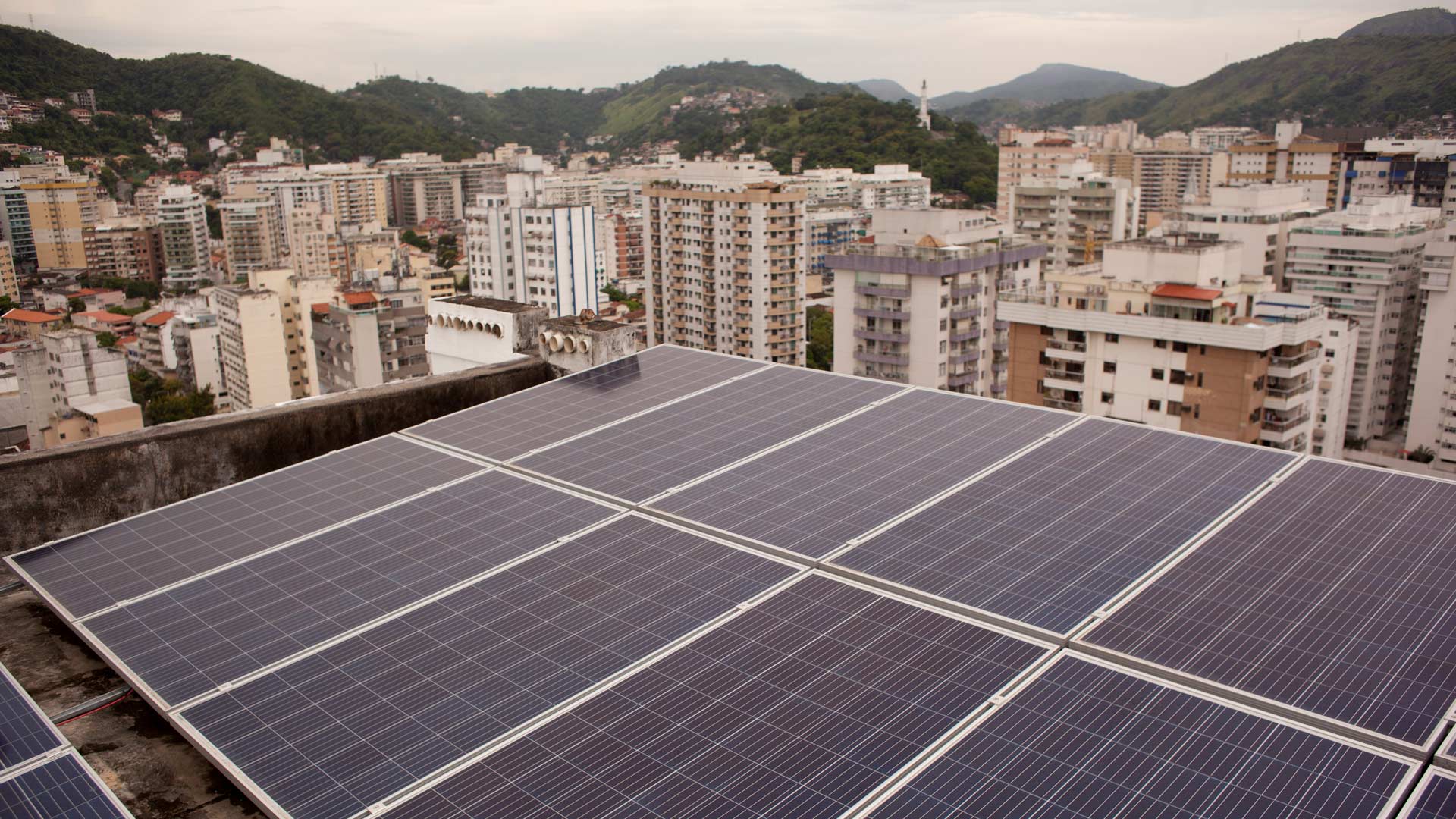Get the right experience for you. Please select your location and investor type.
IMPORTANT NEWS: Transition of investment management responsibilities
First Sentier Group, the global asset management organisation, has announced a strategic transition of Stewart Investors' investment management responsibilities to its affiliate investment team, FSSA Investment Managers, effective Friday, 14 November close of business EST.

Tackling climate change in emerging markets
Finding homegrown businesses to tackle climate change in emerging markets.
Download PDF versionAs the human effects of climate change continue to intensify around the world, asset owners and managers are rightly grappling with their responsibilities to help avoid catastrophe.
The prevailing perception is that investing in emerging markets means investing in fossil fuels and heavy industry. In fact, many home-grown emerging markets companies are tackling climate change problems with innovative and promising solutions.
Investing in those companies that form part of the solution, rather than part of the problem, goes hand-in-hand with superior long-term returns. The companies benefiting from a shift to a more sustainable development path will experience greater growth tailwinds, and face fewer risks, than those threatened by such a shift.
The climate state of play in emerging markets
The importance of environmental decisions made in emerging markets cannot be underestimated. The heart of most environmental issues tends to centre in emerging markets, from air quality to topsoil erosion. Total global emissions depend more than anything else on the energy mix in China and India. Deforestation is a Brazilian and Indonesian issue, driven by demand for agricultural goods from emerging Asia.
Further, the societies that are most dependent on a changing planet and have the least resources and institutional ability to adapt and mitigate are all developing countries. Whether it is floods in Pakistan or more intense typhoons in the Philippines, the communities in these countries are most directly and dramatically affected.
In our opinion, the notion that the developing world should get rich first, and then go green, is nonsensical. Unabated climate change severely threatens the rainfall patterns, water tables, and ecological services that these societies depend upon. An economy simply cannot deliver high living standards to people in a scenario of chronic water scarcity or routine crop failures.
The prevailing perception is that investing in emerging markets means investing in fossil fuels and heavy industry. In fact, many home-grown emerging markets companies are tackling climate change problems with innovative and promising solutions.
Paving a different development path for emerging market economies
The idea of a trade-off between the environment on one hand and human development on the other is therefore only true in an extremely narrow sense. Providing the farmers of India and Africa with electricity tomorrow using coal-fired power generation would result in immediate gains in living standards. However, within a decade, all those gains would be erased as climate change makes their farms untenable and destroys the livelihoods on which those social gains depend.
We believe that emerging markets will have to follow a different development path compared with today’s wealthy countries. It is the only one open to them in order to deliver high standards of living to their people in the long term.
In practice, this means employing technology to leapfrog stages now in the development process. Western Europe is only now shifting aggressively toward renewables in the form of wind and solar; India and Africa will make the same shift at a far earlier point in their development.
The emerging markets opportunity
For stock pickers in emerging markets, this context represents both a challenge and opportunity. We must be conscious of the risks that come with investing in polluting industries that will not have many decades to operate inherently unsustainable business models. Many of the largest companies in the developed world operated for decades on unsustainable linear models of production and consumption, and are now having to reinvent their businesses to become more sustainable.
Emerging markets companies, operating in societies at an earlier stage of development, have the chance to build business models that in their nature are kinder to the planet and people.
We must be alert to the exciting prospects of investing in emerging markets companies that have embedded sustainability into their mission from the outset.
For example, Brazilian company WEG*, has built expertise in key components for hydroelectric, solar and wind power generation. WEG has been able to develop into a globally leading expert in renewable electricity generation infrastructure and now derives more than half its sales from overseas. Its equipment will help the rest of the world’s energy mix catch up with Brazil in the pursuit of net zero.
Equally, Indian IT company KPIT Technologies* has developed into an expert in the embedded software used in electric vehicles (EVs). Their solutions help integrate batteries and motors, and provide tools like control systems and diagnostics to help EVs run smoothly and safely. In this niche, KPIT is globally competitive, counting 12 of the largest 15 auto companies globally amongst their clients. Their services will help vehicle fleets around the globe to make the transition to electric power.
Investing in emerging markets can mean allocating capital to companies like WEG and KPIT Technologies that are contributing solutions to environmental issues, and thus are benefiting from growth derived from the shift to a more sustainable development path. Such companies are likely to continue to provide attractive long-term returns over time.
The opportunity for active emerging markets investors is to continue to find and invest in businesses that should thrive as they contribute to and benefit from sustainable development.
Jack Nelson
October 2022
Important Information
The information contained within this material is generic in nature and does not contain or constitute investment or investment product advice. The information has been obtained from sources that First Sentier Investors (“FSI”) believes to be reliable and accurate at the time of issue but no representation or warranty, expressed or implied, is made as to the fairness, accuracy, completeness or correctness of the information. To the extent permitted by law, neither FSI, nor any of its associates, nor any director, officer or employee accepts any liability whatsoever for any loss arising directly or indirectly from any use of this material.
This material has been prepared for general information purpose. It does not purport to be comprehensive or to render special advice. The views expressed herein are the views of the writer at the time of issue and not necessarily views of FSI. Such views may change over time. This is not an offer document, and does not constitute an investment recommendation. No person should rely on the content and/or act on the basis of any matter contained in this material without obtaining specific professional advice. The information in this material may not be reproduced in whole or in part or circulated without the prior consent of FSI. This material shall only be used and/or received in accordance with the applicable laws in the relevant jurisdiction.
Reference to specific securities (if any) is included for the purpose of illustration only and should not be construed as a recommendation to buy or sell the same. All securities mentioned herein may or may not form part of the holdings of First Sentier Investors’ portfolios at a certain point in time, and the holdings may change over time.
In Hong Kong, this material is issued by First Sentier Investors (Hong Kong) Limited and has not been reviewed by the Securities & Futures Commission in Hong Kong. In Singapore, this material is issued by First Sentier Investors (Singapore) whose company registration number is 196900420D. This advertisement or material has not been reviewed by the Monetary Authority of Singapore. First Sentier Investors, FSSA Investment Managers, Stewart Investors, RQI Investors and Igneo Infrastructure Partners are the business names of First Sentier Investors (Hong Kong) Limited. First Sentier Investors (registration number 53236800B), FSSA Investment Managers (registration number 53314080C), Stewart Investors (registration number 53310114W), RQI Investors (registration number 53472532E) and Igneo Infrastructure Partners (registration number 53447928J) are the business divisions of First Sentier Investors (Singapore).
First Sentier Investors (Hong Kong) Limited and First Sentier Investors (Singapore) are part of the investment management business of First Sentier Investors, which is ultimately owned by Mitsubishi UFJ Financial Group, Inc. (“MUFG”), a global financial group. First Sentier Investors includes a number of entities in different jurisdictions.
MUFG and its subsidiaries are not responsible for any statement or information contained in this material. Neither MUFG nor any of its subsidiaries guarantee the performance of any investment or entity referred to in this material or the repayment of capital. Any investments referred to are not deposits or other liabilities of MUFG or its subsidiaries, and are subject to investment risk, including loss of income and capital invested.



